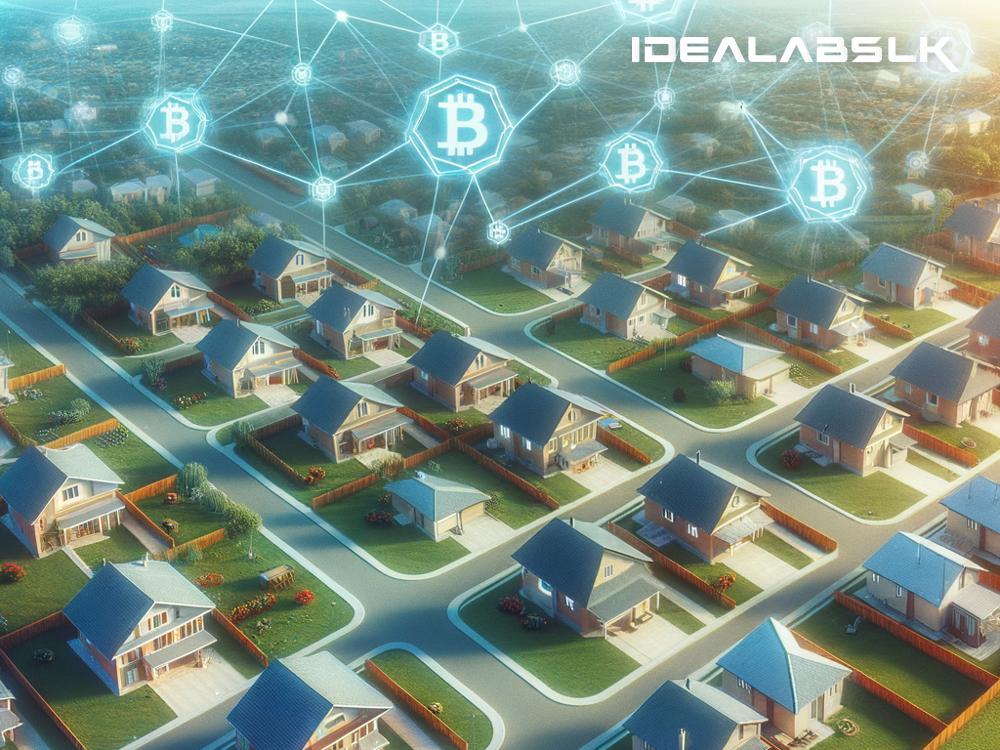Blockchain and Real Estate: How Blockchain Can Simplify Real Estate Financing
In the world of buying and selling homes, offices, and plots of land, there's a lot of paperwork, processes, and people involved. It's like trying to cook a huge dinner where every recipe is complex and requires ingredients from a store miles away. Sounds exhausting, right? Well, this is where blockchain technology comes in, promising to make buying property as easy as ordering your favorite meal online.
Understanding Blockchain in a Nutshell
First, let's break down what blockchain is. Imagine it as a digital ledger or record book that is shared across many computers. Each entry in this record book is a block, and every time a new transaction happens (like buying a piece of candy), a new block is added to this chain of transactions. What makes blockchain special is that it's incredibly secure and transparent. Once something is recorded, it cannot be changed or deleted, and everyone can see the transaction history.
The Traditional Real Estate Financing Process
Now, let's talk real estate. Traditionally, buying a property involves lots of steps and players - you have real estate agents, banks, government bodies for registration, lawyers, and so on. There are documents to be signed, checks to be written, and details to be verified. This process can be long, tiring, and expensive.
How Blockchain Changes the Game
Enter blockchain. This technology has the power to significantly simplify real estate financing by making transactions faster, more secure, and transparent. Let's see how.
-
Smart Contracts: These are self-executing contracts with the agreement terms directly written into code. In real estate, this means purchase agreements can be auto-filled and executed without the need for endless paperwork or middlemen. This not only speeds up the process but also reduces costs.
-
Transparent Transactions: Every transaction on the blockchain is visible to all parties involved, which immediately builds trust. Buyers and sellers can see the history of a property, including previous sales, disputes, and changes in ownership, without having to dig through public records.
-
Secure Transactions: Blockchain's secure nature ensures that once a transaction is recorded, it can't be altered or tampered with. For real estate, this reduces the risk of fraud and errors in public records.
-
Tokenization of Assets: Imagine being able to divide your property into digital tokens, similar to stocks in a company. This means you could sell fractions of your property to multiple investors, making property investment more accessible and liquid. It's a game-changer in how properties are financed and owned.
-
Streamlined Financing: Blockchain could streamline the process of getting a mortgage or loan by consolidating financial information in a secure, immutable format. Banks could instantly access your financial history, reducing the time and paperwork required to approve a loan.
The Road Ahead
While the potential is enormous, the adoption of blockchain in real estate is still in the early stages. There are regulatory challenges to overcome, and the real estate industry, known for its traditionalism, might be slow to change. However, pioneers in various countries are already experimenting with blockchain for property transactions, signaling a promising start.
Conclusion
Blockchain technology has the potential to transform the real estate industry by making transactions more efficient, secure, and transparent. By simplifying the process of buying, selling, and financing properties, blockchain could save time and money, making real estate investment accessible to more people. While we might not see a complete overhaul overnight, the seeds of change are planted. As more people understand and embrace this technology, we could witness a new era in real estate, where buying a house might be as simple as making an online purchase from your favorite store.
In the end, blockchain in real estate is not just about simplifying financing or transactions; it's about opening doors to new ways of investing, owning, and sharing property - making the dream of homeownership a reality for more people around the world.

